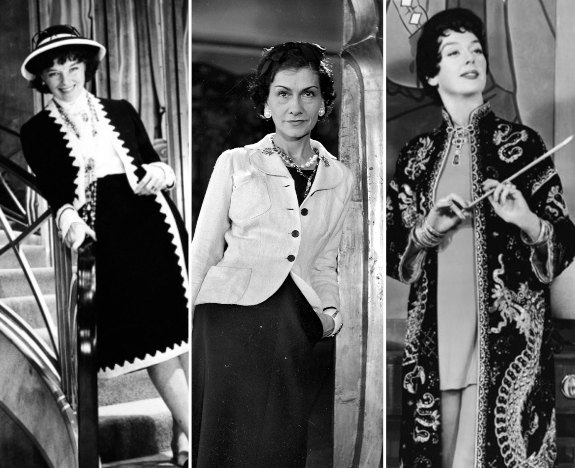To start the new year on a positive note, here are two lovely letters from respectively Rosalind Russell and Fred Astaire, written in late 1964 to Audrey Hepburn. As discussed in an earlier post, Audrey was devastated about not getting an Oscar nomination for her portrayal of Eliza Doolittle in My Fair Lady (1964). Several months before the nominations were announced, however, she must have been very pleased to receive these letters from Rosalind Russell and Fred Astaire, praising her for her performance. Russell wrote her letter on 13 October 1964, while Astaire's letter is undated but presumably written circa December 1964.
Transcript:
Dear, dear Audrey:
A wee note to tell you how delicious + truly perfect you are in "Fair Lady." I was there that "night of nights" + wanted to come + hug you for the great joy you gave me but it seemed an imposition where you had so many to "look after".
Besides, I was inarticulate with admiration for all you had contributed to the film and wanted to put it -at least in part- in a letter. All love to you + Mel and eternal congratulations on a job magnificently done!
Devotedly,
Rosalind
October the thirteenth
*PS. Freddie saw the picture in N.Y.+ of course adored it. Said he raced over to tell you so
You looked divine!
How about that Harry Stradling?
Kisses for Sean.
Rosalind
Notes
-Freddie was most likely Frederick Brisson, Russell's husband- the only man she was ever married to (from 1941 until her death in 1976).
-Harry Stradling was My Fair Lady's cinematographer and won an Oscar for his work.
-Sean was Audrey's son by Mel Ferrer, whom Audrey was married to from 1954 until 1968.
 |
| Rosalind Russell and Audrey Hepburn pictured together backstage at the 39th Academy Awards in April 1967-- here they are with Fred Zinneman holding his Oscars for Best Picture and Best Director for A Man for All Seasons. |
Transcript:
Tuesday
Dear Audrey:
I cannot contain myself. You are so perfect in My Fair Lady! You bring that certain plus to it that one subconsciously hopes for when a big Broadway show comes to the screen.
That combination of comedy and pathos could only be brought forth by Audrey and "That Face".
Little tears welled up in my eyes many times. I saw the stage play four times. Twice in N.Y. once in California & once in Australia.
Loved it each time with the different companies but I never "teared up" before.
It's indeed a perfectly wonderful movie and I sat entranced like all the Sat. matinee audience did. *Hermes [Pan] and I went together. I thought he did an excellent job. Rex [Harrison] was as ever - great great. I thought all the casting was just right.
Old Jack Warner deserves credit for picking the right director and technicians who could bring out the taste that was so needed for this movie.
Hooray! Hooray! It seems like you have like fractured me again.
Best love you and Mel-
Yours -
Fred
Note
-Hermes Pan was responsible for the choreography on My Fair Lady. Pan and Astaire were good friends and had worked together on a great many films including Astaire's films with Ginger Rogers.
 |
| Above: Audrey Hepburn and Fred Astaire photographed in Paris in June 1956; below: Audrey and then-husband Mel Ferrer on the set of My Fair Lady. |



























